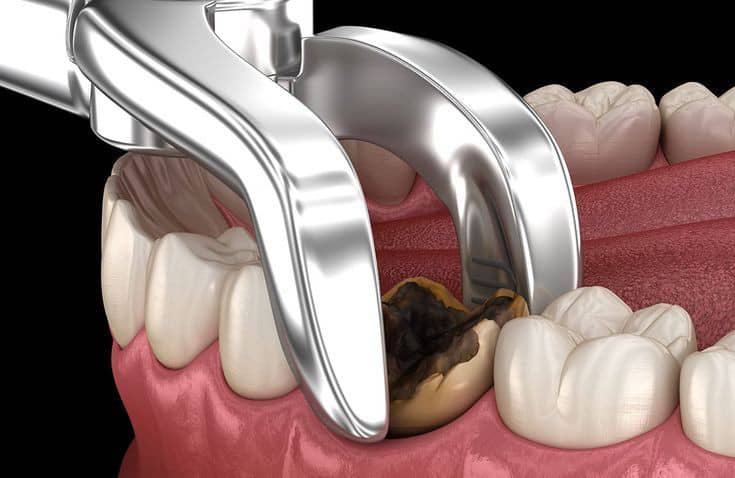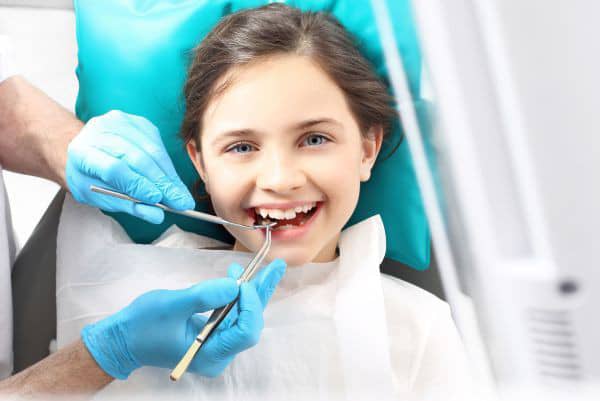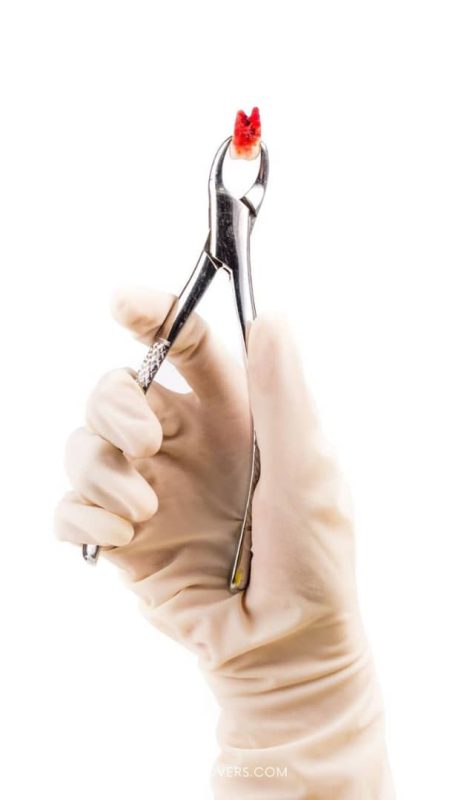ترجمه نوشته:

Tooth extraction
A comprehensive guide to treatment, benefits, techniques, and care.
Tooth extraction is one of the key and most widely used treatments in dentistry, considered as the last option to maintain oral and jaw health in certain situations. Whether due to severe decay, infection, impacted teeth, or planning for orthodontics, tooth extraction with modern techniques and meticulous care can pave the way for subsequent treatments such as implants.
In Iran, and especially in the city of Shiraz, tooth extraction services are provided by professional dentists, using modern technologies, in a standard environment and at an affordable cost to international patients. This article is a complete and specialized guide to the tooth extraction process, its types, pre- and post-operative care, advantages and disadvantages, possible complications, and answers to frequently asked questions in this field.
Definition and purpose of tooth extraction
Tooth extraction is the complete removal of a tooth from its bony socket. This is done when it is not possible to save the tooth through other treatment methods such as root canal or restoration, or when there is a need to remove the tooth for specific purposes such as space correction in orthodontics or prosthetic treatments (implants, bridges). Tooth extraction may be simple or surgical and should be performed by a general dentist or maxillofacial surgeon.
Types of tooth extraction methods
Simple Extraction: Teeth that are completely outside the gum are removed with instruments such as forceps and luxators without the need for surgical incisions. This procedure is usually performed under local anesthesia and is minimally invasive.
Surgical Extraction: For impacted, broken, or complexly rooted teeth, a surgical procedure involving cutting the gums and sometimes scraping the bone is used.
Wisdom tooth extraction (impacted or semi-impacted wisdom):
One of the most common and complex cases of tooth extraction, it is usually performed by an oral and maxillofacial surgeon and may require stitches and special medications.
Expert evaluation before tooth extraction
Before tooth extraction, detailed medical and dental examinations are performed, including:
Review of medical history (heart disease, diabetes, anticoagulant medications), preparation of panoramic or CBCT images, evaluation of tooth location and alternative treatment plan
The main reasons for needing tooth extraction
Severe and untreatable decay, extensive infection or recurrent abscesses, gum disease and bone loss, impacted or supernumerary teeth, severe tooth fracture, preparation for orthodontics or implants
New technologies in tooth extraction in Shiraz
Piezosurgery: Minimally invasive ultrasonic device for precise cutting
Laser dentistry: Reducing inflammation and bleeding
Sedation and deep anesthesia: for anxious patients (PRF: for faster healing of gum tissue and bone)
Socket Preservation Techniques
In cases where implants are to be placed later, techniques such as filling the tooth cavity with bone powder and biocompatible membranes are used to prevent bone resorption.
Post-tooth extraction care
Keeping sterile gauze in place for up to two hours, avoiding spitting, sucking, and rinsing for up to twenty-four hours, eating a soft, cold diet, avoiding smoking for up to seventy-two hours, taking antibiotics and painkillers carefully, and using cold compresses for up to twenty-four hours.
Recovery and convalescence
Most patients recover within three to seven days. In some cases, full recovery may take several weeks.
Possible complications of tooth extraction:
Dry socket, temporary numbness in the lip or tongue, sinus perforation in the upper teeth, infection or swelling if care is not taken
Tooth extraction in Shiraz; a safe and affordable choice
With expert doctors, modern clinics, and affordable prices, Shiraz is one of the best cities for dental treatment and extractions for foreign patients. Easy communication with patients, integrated welfare and treatment services, and the use of modern technology have made Shiraz an attractive center for health tourism.
Frequently Asked Questions About Tooth Extraction in Iran
Does tooth extraction hurt?
No, with general anesthesia or sedation, there is no pain. Prescription medications can also help reduce pain after treatment.
How much does a tooth extraction cost in Iran?
Prices vary depending on the type of treatment and the doctor’s expertise, but are up to 70% cheaper than in other countries.
Can implants be placed immediately?
In some cases, yes, provided there is no infection and it is kept quiet.
Can children have their teeth extracted? Yes, if necessary and under the supervision of a pediatric dentist, usually with sedation.
Why choose Shiraz and Arvan Health Tourism Group for treatment and travel?
When it comes to combining professional treatment with an unforgettable experience, Shiraz is one of the best choices in Iran and the Middle East. With its pleasant climate, authentic Iranian architecture, historical gardens, world-class antiquities, and hospitable people, this city invites every medical traveler to a different experience.
Arvan Health Tourism Group proudly offers complete tourism packages, accommodation, accompanying interpreter, airport transfer and planning of visits to tourist attractions, in addition to advanced dental services. We believe that medical travel is not just a treatment; it is an opportunity to restore a smile and create a sweet memory in the heart of Shiraz.
If you are looking for high quality, affordable prices, peace of mind, and a special experience, contact us now.
Arvan, a reliable companion on the path from treatment to peace.
General information
About tooth extraction
Anesthesia:
No
Recovery period:
-
Duration of surgery:
1 hour
Duration of hospitalization:
No
Return to normal life:
Same day
Cost:
-
Arvan treatment packages
Click to check Arvan packages

To book an appointment and receive a free consultation, contact us now.
Frequently asked questions about tooth extraction in Iran


No, the patient is given anesthesia during tooth extraction, so the patient will not feel any pain. In addition, many of the teeth we are going to extract have dead nerves, so we will not feel any pain.
No; Smoking is prohibited after tooth extraction because it causes the blood clot to break off from the tooth cavity and creates a dry cavity. Since this blood clot plays a fundamental role in wound healing, if it breaks off, the healing process will be slowed down and the patient will experience a lot of pain. In addition, smoking after tooth extraction may cause complications such as dizziness, high blood pressure, and tooth infection.
After a tooth extraction, it is normal to feel some pain as the anesthesia wears off and is relieved by taking painkillers. You may also experience some minor swelling and bleeding, but if the swelling, bleeding, and pain are severe for more than 4 hours after the tooth extraction, you should definitely see your dentist.
For the first 24 hours after a tooth extraction, you should follow these instructions:
- Avoid rinsing your mouth to avoid dislodging the blood clot.
- Apply pressure to the site of the extracted tooth with a clean gauze pad for the first 45 minutes after the tooth is extracted.
- Eat soft foods for the first 24 hours.
- Avoid eating and drinking hot food and drinks.
After a tooth extraction, it takes about 3 to 4 weeks for the gums to heal, and the gum bone will heal after a month or so; but the pain at the site of the tooth extraction should subside by the second day.
Articles related to tooth extraction
✅ Complete travel guide to Qalat Village, Shiraz | A mountain tourism gem with a waterfall, church, and eco-lodge
-
Posted by
arwan.ad
- 0 comments
“Journey to the heart of Azeri culture; treatment, relaxation, and a unique experience with Arvan Health Tourism Group”
-
Posted by
arwan.ad
- 0 comments
Advantages and disadvantages of tummy tuck😱
-
Posted by
arwan.ad
- 0 comments





